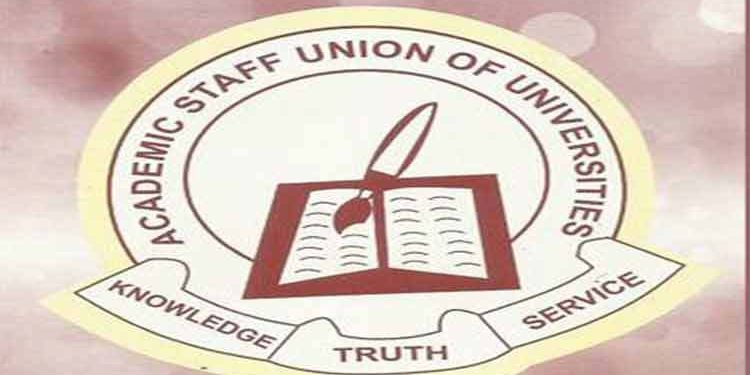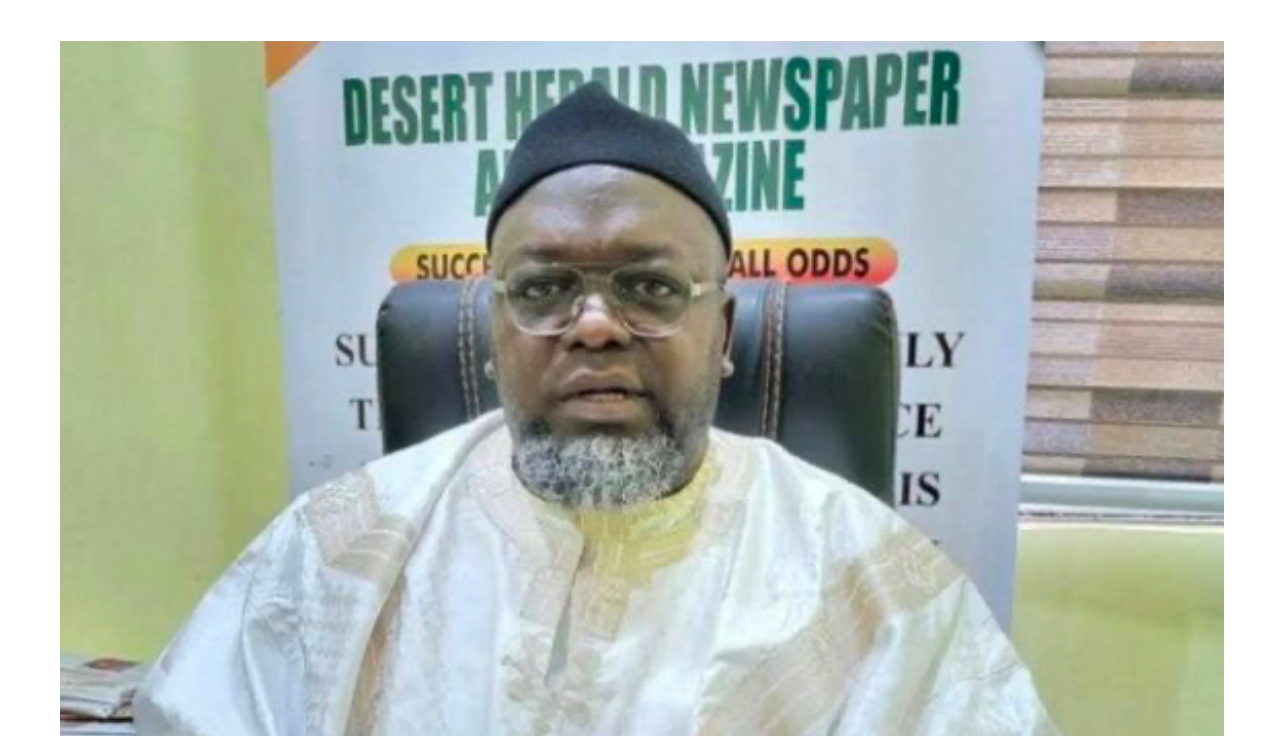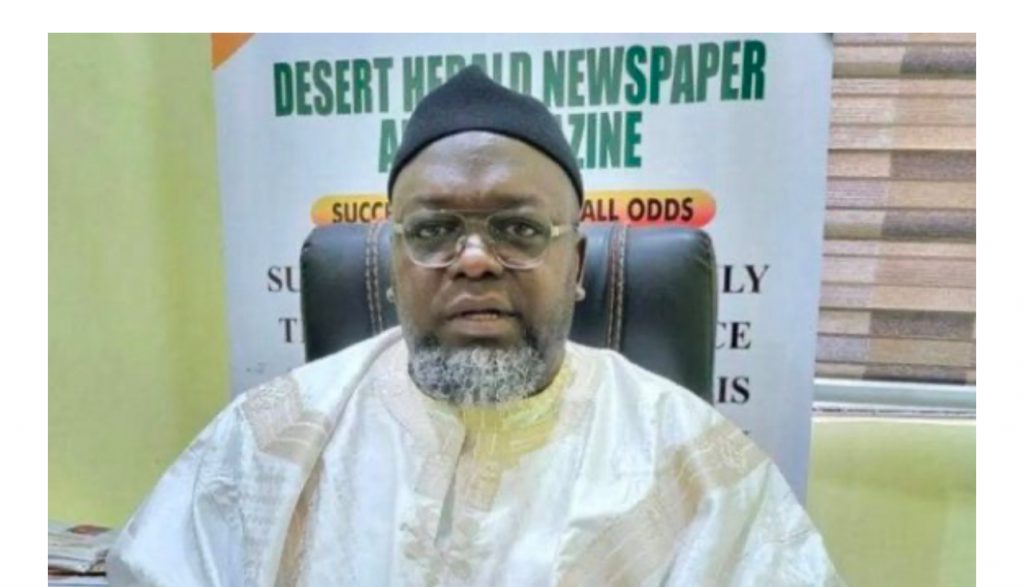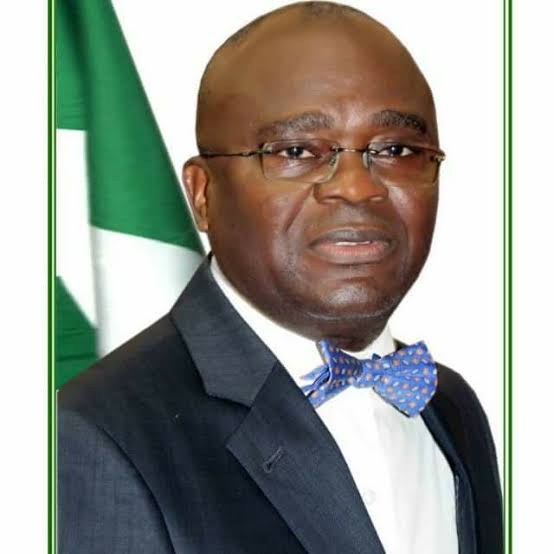news
Strike: ASUU tackles NITDA over UTAS

 …Why we oppose IPPIS
…Why we oppose IPPIS
…NITDA did a hatchet job
THE Academic Staff Union of Universities, ASUU, yesterday, berated the National Information Technology and Development Agency, NITDA, over what it described as ‘deliberate misinformation and disinformation of the public on the integrity test conducted on the University Transparency and Accountability Solution, UTAS, by the agency.
The Lagos Zonal Coordinator of the Union, Mr Adelaja Odukoya, who spoke at a press conference held at the Federal University of Agriculture, Abeokuta, FUNAAB, said the utterances of the NITDA spokespersons are capable of elongating the ongoing strike.
Odukoya said its members would not return to the class until the University Transparency and Accountability Solution, UTAS, is adopted and all their allowances paid.
His words: “We, however, wish to draw the attention of all concerned to the deliberate misinformation and disinformation of the public by the National Information Technology and Development Agency, NITDA, on the state of the Integrity Test and the adoption of UTAS by Federal Government.
“NITDA was directed to conduct Integrity Test on the UTAS platform before deployment by government. However, in a report of the first test sent to the Minister of Communication and Digital Economy, Dr Isa Pantami on December 3, 2021, NITDA indicated that the UTAS platform failed some fundamental test cases, despite a summary score of 97.4% and therefore, declined issuance of Certificate of Compliance. ASUU however, disagreed with the NITDA report and wondered how 97.4% could have amounted to failure.
“Consequent upon this disagreement, it was agreed at a meeting with the Minister of Labour and Employment that joint re-assessment tests between the technical teams of ASUU and NITDA be conducted and these were done on Tuesday, March 8, 2022. Expectedly, the assessment of all the 698 tests conducted was successful with an overall score of 99.3%. The few exceptions are five cases requiring modifications.
“However, while the re-assessment tests were ongoing, the DG, NITDA released misleading information to the public from the discredited report of the first test that UTAS failed again, leaving out the result of the jointly conducted second test of 99.3%. Our Union then wonders how and where a 99.3% test score would be adjudged as a fail.
“We are aware that the position of the NITDA DG, Inuwa Abdullahi, is not consistent with the enthusiasm of the Technical Team from the agency he superintends over and the DG is unduly politicizing the entire process to the country, possibly in the interest of the Minister for Communication and Digital Economy.
“Their dispositions amount to passing a vote of no confidence on the Nigerian intelligentsia and our union would not allow this to fly. Good enough, we are convinced that the Technical Team from NITDA, are quite abreast of the process and the responsibilities around their certified qualifications”.
“If the government allows itself to be misinformed and misdirected through the managerial incompetence of the NITDA officers, our union considers it the peak of insensitivity to the plight of the Universities, including staff, students and indeed the country.”
ASUU argued that the Integrated Personnel and Payroll Information System, IPPIS, was imposed on universities, despite its demonstrated shortcomings.
He said: “The Federal Government’s forceful migration of our members unto the platform, even when our union has demonstrated that the system does not accommodate the peculiarities of the university system should not just worry Nigerians but should equally raise the curiosity of lovers of Nigerians on the main reasons for imposing IPPIS.
“ASUU has consistently pointed out the apparent deficiencies inherent in IPPIS and the glaring superiority of our indigenously developed and home-grown UTAS as confirmed by all Government Agencies and stakeholders in the University System.”
“Our union has continually drawn the attention of Nigerians to the widely reported fraud being perpetrated by the operators of IPPIS within and outside the Accountant-General of the Federation’s Office. This monumental fraud in IPPIS was confirmed by the report of the Auditor-General of the Federation and was equally acknowledged by the National Assembly when the AGF appeared before its Public Accounts Committee.
“IPPIS is a bastion of fraud that permits the enrolment of ghost workers and constitutes a financial drain on the scarce resource of the Nigerian State.
“This development was also recently reinforced by the confession of the Head of Civil Service of the Federation, Mrs Folashade Yemi-Esan, who alarmed that over 500 names of fake workers have infiltrated the IPPIS platform.
“IPPIS, as a payment platform is yet to be subjected to any Integrity Test by the government. Our union challenged the government to similarly subject IPPIS to Integrity Test as done to UTAS by independent technical teams”.
“ASUU, therefore, wants the Nigerian public to call the DG, NITDA to order on the point of integrity not to play politics and vendetta with the future of Nigeria and that of our public Universities as National treasures and collective patrimony of all Nigerian citizens.
“We are convinced that the DG of NITDA is only out to carry out the hatchet job of a Minister whose Professorial fraud was challenged by our Union.
“After the second re-assessment tests that ended on March 18, 2022, ASUU and NITDA technical teams agreed to reconvene on Monday, March 28, 2022, to conclude on the outstanding five test cases, demonstrate the payment gateway and implementation of other recommendations on the UTAS Platform. Surprisingly, NITDA on Wednesday, March 23rd, 2022 unilaterally cancelled the scheduled meeting of Monday, March 28th 2022 which was intended to conclude the report for onward submission to the Honourable Minister of Labour and Employment.
“It has become very clear to our Union that the unilateral cancellation of the meeting of Monday, March 28th was a proof that NITDA has come to the final stop and admitted failure in all the orchestrated unpatriotic attempts to sabotage and discredit UTAS which an otherwise forward-looking government would be finding ways of deploying beyond the Nigerian public universities for which it was designed. It can, therefore, not be over-emphasized that government has run out of reasons and lies not to accept, approve and adopt UTAS.”
The Union noted that the strike would not be suspended until the government addresses the adoption of UTAS, implement the renegotiated agreement, pay all outstanding allowances and fulfil all other issues contained in the Memorandum of Action signed with our union.
news
JUST IN: Court Rejects “Terrorists’ Negotiator” Tukur Mamu’s Third Bail Application


A Federal High Court in Abuja has rejected a fresh application for bail filed by detained alleged terrorists negotiator, Tukur Mohammed Mamu.
Justice Mohammed Umar, in a ruling on Wednesday, noted the health complaint by Mamu and held that the detaining authority, the Department of State Services (DSS) should not release him but take him to an appropriate health facility where he would be adequately attended to.
Justice Umar noted that, by the history of the case so far, the prosecution has exhibited diligence in it handling of the case and exhibited diligence in prosecuting the case.
The judge said one of the reasons for granting bail is where the prosecution is not diligent, noting that since the prosecution in this case is diligent, the application for bail cannot be granted.
He subsequently ordered that the defence lawyer should choose the health facility comfortable to the defendant, to which he should be promptly taken.
He also asked the DSS to allow the defendant access to members of his family.
The ruling on Wednesday is the third time the court will reject his application for bail since his was arraigned on March 21, 2023 by the Federal Government on a 10-count charge bordering on terrorism financing, among others.
Mamu was arrested on September 7, 2022 by Egyptian security officials at the Cairo International Airport, on reasonable suspicion of financing Boko Haram terrorism activities.
He was alleged to have convinced the terrorists to discuss ransom payments with individual families of the hostages of the train attack instead of the Chief of Defense Staff Committee set up by the Federal Government for his personal financial gain.
He was said to have been nominated by the terrorists that attacked the Abuja-Kaduna bound train sometime in March 2022 which took scores of persons hostage.
Mamu was alleged to have collected ransoms on behalf of the Boko Haram terrorists from families of hostages, confirmed the amount and facilitated the delivery of same to the terrorists.
news
BREAKING: ASUU suspends two-week warning strike


The Academic Staff Union of Universities has announced the suspension of its ongoing two-week warning strike.
The National President of ASUU, Prof. Chris Piwuna, made this known in an ongoing press briefing in Abuja on Wednesday.
According to Piwuna, the decision stemmed from the meeting of the National Executive Council meeting which was held overnight and ended by 4:00 am on Wednesday.
Piwuna noted that the union decided to embark on the strike due to the failure of the government to meet its demands on time.
“We’ve had useful engagements with representatives of the government to consider the response to the draft renegotiation of the 2009 agreements. However, we are definitely not where we were prior to the commencement of the strike.
news
Update : police tracks down mastermind of railway vandalism, recovers load of stolen Materials in Plateau, Says Opeifa


The Nigerian Railway Corporation (NRC) had a major breakthrough recently it its efforts to apprehend the vandals of its critical assets across the country.
Towards this end, the Corporation’s police Command has arrested one Musa Abdullahi, aka Major aged 32, a notorious receiver and kingpin of vandalized railway materials, in Kaduna.
The arrest was a major success recorded by the Corporation in its campaign against the vandalisation and theft of railway materials, just as it intercepted a trailer loaded with railway components In plateau State.
In Kaduna, operatives of the Nigerian Police, Railway Command, arrested the suspect around the Rigasa area.
His arrest followed intelligence reports on the vandalism of electrical installations along the Mando–Rigasa corridor on Tuesday,14th October 2025.
Investigation is ongoing, and the case will be charged to court on conclusion.
In Plateau State, operatives of the Nigeria Police, Railway Command, intercepted trailer conveying large quantities of railway materials along KM 822–823, Foromaxis, in the early hours of Tuesday, 14th October 2025.
The truck, which was abandoned by its driver who fled the scene, was successfully towed to the Jos Railway Police Station on Wednesday, 15th October 2025.
Investigation is on going to uncover and apprehend all individuals connected to the theft.
The Managing Director of the NRC, Dr. Kayode Opeifa, commended the Nigeria Police for their professionalism, intelligence-led operation, and swift action in handling both incidents.
He described the arrests and recovery as clear evidence of the renewed synergy between the Corporation and security agencies in protecting critical railway infrastructure across the country.
Dr. Opeifa reaffirmed the Corporation’s resolve to strengthen collaboration with the Nigeria Police, the Nigeria Security and Civil Defence Corps (NSCDC), and other security formations to ensure that vandals, receivers, and collaborators are brought to justice.
He emphasized that such criminal acts amount to economic sabotage, warning that the NRC Management will continue to pursue zero tolerance for vandalism through enhanced surveillance, community engagement,and intelligence sharing.
Opeifa further appealed to residents of communities hosting railway facilities to remain vigilant and promptly report any suspicious movement around rail installations.
He noted that the railway system remains a major driver of national development and urged the public to view its protection as a shared responsibility.
-

 news5 years ago
news5 years agoUPDATE: #ENDSARS: CCTV footage of Lekki shootings intact – Says Sanwo – Olu
-

 lifestyle5 years ago
lifestyle5 years agoFormer Miss World: Mixed reactions trail Agbani Darego’s looks
-

 health5 years ago
health5 years agoChairman Agege LG, Ganiyu Egunjobi Receives Covid-19 Vaccines
-

 lifestyle4 years ago
lifestyle4 years agoObateru: Celebrating a Quintessential PR Man at 60
-

 health5 years ago
health5 years agoUPDATE : Nigeria Records 790 new cases of COVID-19
-

 health5 years ago
health5 years agoBREAKING: Nigeria confirms 663 new cases of COVID-19
-

 entertainment9 months ago
entertainment9 months agoAshny Set for Valentine Special and new Album ‘ Femme Fatale’
-

 news5 months ago
news5 months agoBREAKING: Tinubu swears in new NNPCL Board


